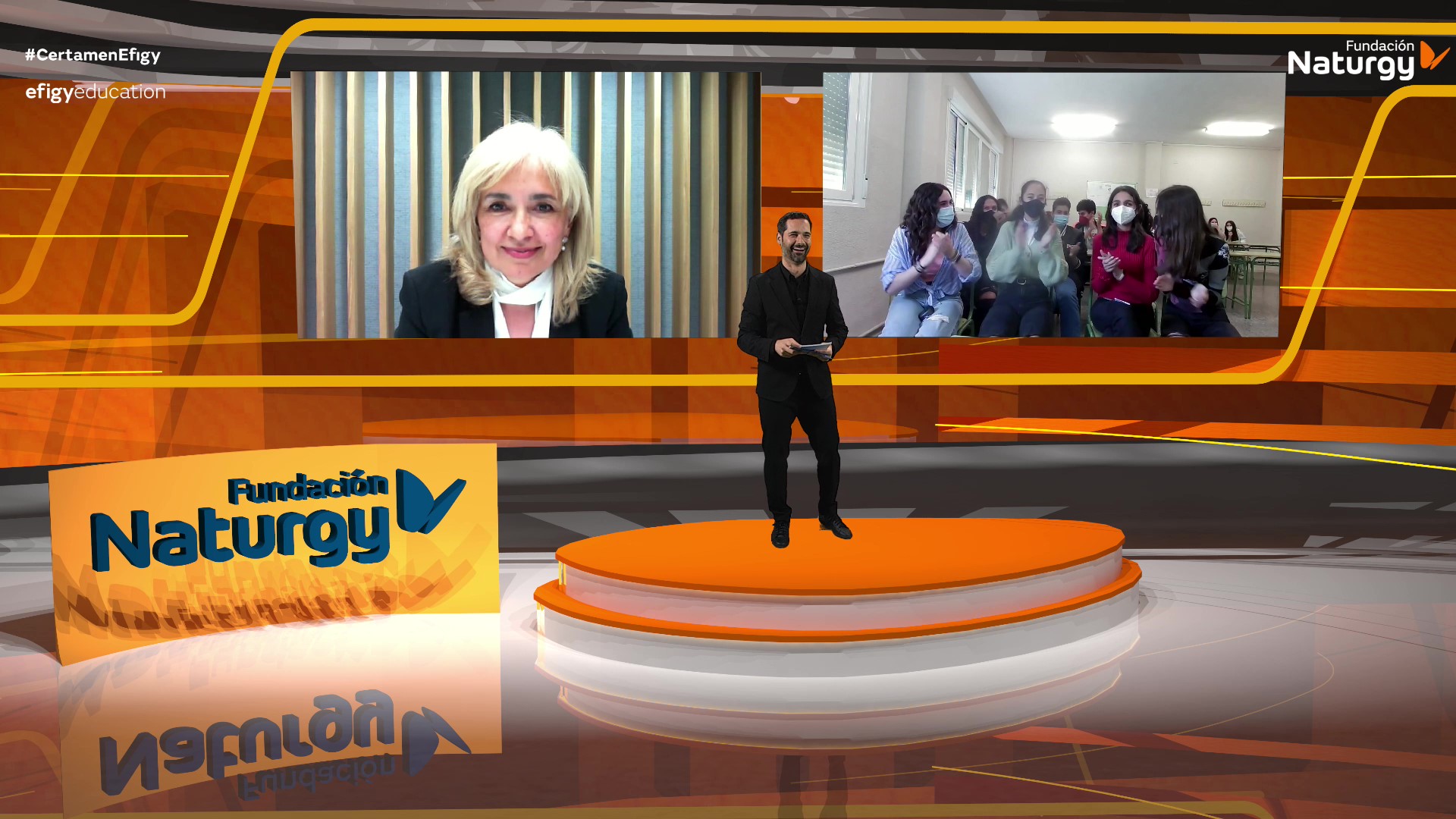Naturgy Foundation rewards energy innovation projects from four schools in Aragón, Galicia, La Rioja and Madrid.
Almost 570 students from around Spain have taken part in the 3rd Efigy Technology Competition which aims to reinforce the values of energy efficiency, foster a vocation for technology among young people, and promote research capacity and teamwork.
The winning projects propose we use beer cereal waste, develop a solar car prototype, and sustainable energy and air quality improvement measures for schools in a setting dominated by the pandemic.

Four schools from Aragón, Galicia, La Rioja and Madrid have won the third edition of the Efigy Competition in which the Naturgy Foundation challenges year 3 and 4 secondary school students from all over Spain to submit energy innovation projects that contribute to improving the planet. In this way, the energy company’s foundation seeks to foster a vocation for technology and the values of energy efficiency among young people.
The winning projects propose we use beer cereal waste, develop a solar car prototype, and sustainable energy and air quality improvement measures for schools in a setting dominated by the pandemic.
The awards were announced today at a gala streamed live and presented by science educator Luis Quevedo; all ten semi-finalist groups and students from participating schools connected to the gala.
The panel also took part in the gala and valued the innovative capacity of the participants in the field of energy, developing original projects based on empirical data and the scientific-technological knowledge of all participants.
General Director of the Naturgy Foundation, María Eugenia Coronado, highlighted the quality and creativity of the projects submitted, with a special mention “for the determination and enthusiasm students and teachers have once again placed in this initiative”. “Our main challenge is to maintain the educational quality of our teaching programmes, leadership in educational innovation and promoting STEM skills in order to contribute to developing the energy sector, guaranteeing quality professional renewal”, said Ms Coronado.
Over the school year, around 570 groups of 3rd and 4th year secondary students have worked on over one hundred projects together with their teachers at 67 schools located in seven autonomous communities: Aragon, Castile-La Mancha, Catalonia, the Community of Madrid, Galicia, the Valencian Community and La Rioja. Of these, ten projects reached the semi-finals.
Winning projects
Students from San Agustín de Calahorra school (La Rioja) won the ‘Most innovative project’ category. Their proposal, ‘Coal&Beer’, was a project using energy innovation and that proposed taking advantage of cereal waste generated by beer production. The panel valued their proposal highly as it is based on the circular economy, is related to the SDGs and based on real data. (see project video).
Manuel Peleteiro school in Santiago de Compostela (A Coruña) and its ‘Ten points for a sustainable school’ took top spot in the ‘Most feasible project’ category. It proposes implementing different sustainable energy measures in the school, such as installing a smart light system using floor tiles or a rainwater collection system. In its assessment, the panel took into account that it is one of the most complete projects, contributing clear sustainability measures that can easily be implemented by schools. The project by this school from Galicia was also awarded the ‘Most recognised by the audience’ prize as it received most votes on the Foundation’s social media. (see project video).
‘Best communicated project’ went to the Fomento Sansueña de Zaragoza school (Aragón). Its female students, with their ‘Solar car’ project, proposed a solar-electric hybrid prototype with two batteries, one associated with solar panels and the other plug-in to give the vehicle greater autonomy. The panel felt it was worthy of the award due to its originality and highlighted the video submitted to support the project, (see project video).
The panel also gave a special mention to the ‘School with greatest student involvement and support’, which went to IES Francisco Giner de los Ríos, Alcobendas (Madrid). This group’s project, ‘Air quality in classrooms’, proposes solutions so that facilities can meet measures set by authorities due to the pandemic, without losing thermal comfort to prevent the waste of energy resources. The school also took second place in the ‘Most feasible project’ category. (see project video).
Like last year, the third edition of the competition included public voting via the Naturgy Foundation’s social media profiles. Semi-finalist project videos achieved almost 23,000 views and 6,500 likes.
This year, the expert panel comprised Imma Aguilar, managing director of the Spanish Foundation for Science and Technology (FECYT), attached to the Ministry of Science and Innovation; Ruth Carrasco, consultant at the Ecological Transition Institute at the Ministry for the Ecological Transition and Demographic Challenge (MITECO); Marina Villegas, institutional delegate of the Spanish National Research Council (CSIC); Núria Rodríguez, director for the Environment and CSR at Naturgy, and María Eugenia Coronado, managing director of the Naturgy Foundation .
An entire academic year preparing their projects
Last October, Naturgy Foundation launched the third edition of the Efigy Technology Competition so that students could once again resolve a challenge that contributes to improving the planet. The ultimate aim of this initiative is to foster a vocation for technology and the values of energy efficiency from an early age, as well as reinforce research skills and favour teamwork.
The Efigy Technology Competition is part of the Efigy Education programme, which the Naturgy Foundation uses to provide students and schools with an extensive educational catalogue. Due to restrictions caused by Covid-19, these resources are available free on the Efigy Education digital platform.
Share